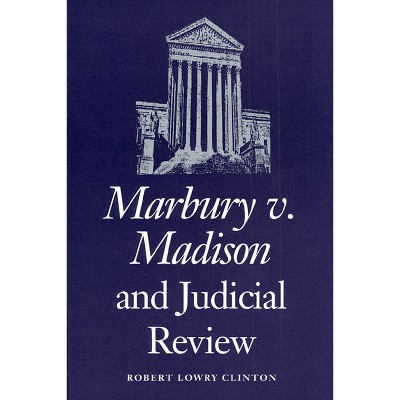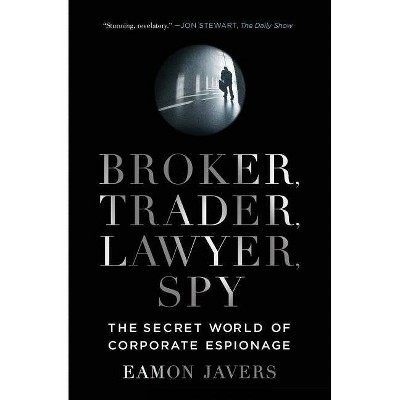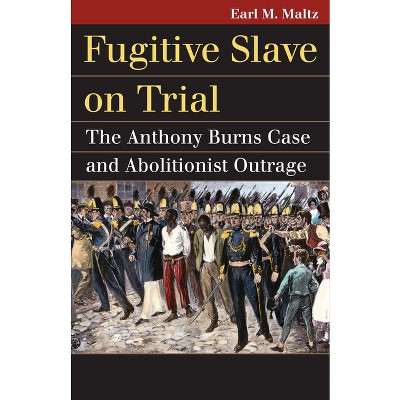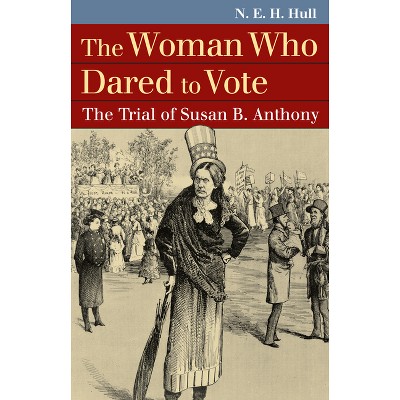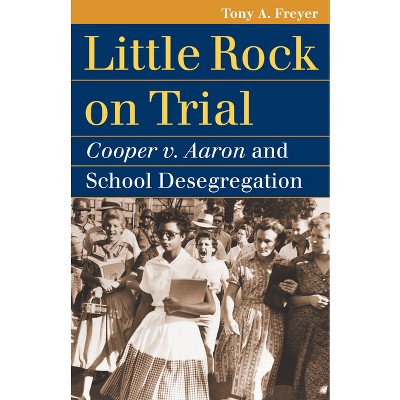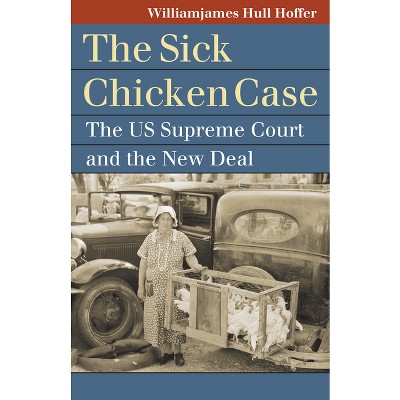Sponsored

The Unusual Story of the Pocket Veto Case, 1926-1929 - (Landmark Law Cases & American Society) by Jonathan Lurie (Paperback)
In Stock
Sponsored
About this item
Highlights
- According to the US Constitution, if a bill is not returned to Congress by the president within ten days of receiving it and Congress has adjourned, the bill is effectively vetoed.
- Author(s): Jonathan Lurie
- 192 Pages
- Freedom + Security / Law Enforcement, Government
- Series Name: Landmark Law Cases & American Society
Description
About the Book
"According to the US Constitution, if a bill is not returned to Congress by the president after ten days of receiving it and Congress is adjourned, the bill is effectively vetoed. The so-called "pocket veto" dates at least as far back as the presidency of James Madison, but the constitutionality of its use had not been considered by the Supreme Court until Okanogan, Methow, San Poels...Indians v. the United States was decided in 1929, during the last year of Chief Justice Taft's tenure. Despite responding to a situation in American Indian Law, the Pocket Veto Case is notable for the fact its final decision had nothing whatsoever to do with Indian Law. The Okanogan Tribe is barely mentioned at all in the Court's unanimous opinion, delivered by Justice Edward Sanford, which ultimately concluded that the pocket veto is a constitutional exercise of presidential authority"--Book Synopsis
According to the US Constitution, if a bill is not returned to Congress by the president within ten days of receiving it and Congress has adjourned, the bill is effectively vetoed. The so-called pocket veto dates at least as far back as the presidency of James Madison (1808-1816), but the constitutionality of its use had not been considered by the Supreme Court until Okanogan et al. v. United States was decided in 1929, during the last year of Chief Justice Taft's tenure. Despite responding to a situation in American Indian law, the Pocket Veto Case is notable for the fact that its final decision had nothing whatsoever to do with Indian law. The Okanogan Tribe is barely mentioned at all in the Court's unanimous opinion, delivered by Justice Edward Sanford, which ultimately concluded that the pocket veto is a constitutional exercise of presidential authority. The Unusual Story of the Pocket Veto Case explores the underlying tension between congressional authority and the executive prerogative. Especially today, with such tension very much in evidence, it becomes all the more important to understand how and why the Constitution actually appears to encourage it. Studying Okanogan et al. v. United States and use of the pocket veto provides an excellent example of the tension between Congress and the president.Review Quotes
"Jonathan Lurie makes significant contributions to the scholarship on the separation of powers and the politics of negative power, and the book is recommended to everyone interested in the historical evolution of the pocket veto, and the back-and-forth debate between the two branches of government over its use."--Congress & the Presidency
"This is an extremely interesting book explaining how problematic/controversial the history of the pocket veto has been. Jonathan Lurie expertly addresses several separate issues. He begins by discussing the creation of the federal Court of Claims, allowing for suits to be filed by most parties against the United States but specifically denying jurisdiction to suits filed by foreign nations and Indian tribes. He then notes that for tribes to be compensated for the loss of their vast tracts of land to white settlers, Congress had to pass special legislation giving them specific access to the Court of Claims in which they could make their cases. One special bill giving access to six Pacific Northwest tribes was pocket vetoed by President Coolidge. The tribes believed Coolidge's use of the pocket veto was invalid, as Congress had not adjourned for the session, and, asserting that the special bill had become law without the president's signature, they entered the Court of Claims, arguing that the judges had jurisdiction to hear their case for compensation. The Court of Claims found their case to be without legal foundation, and the Supreme Court unanimously affirmed. He concludes by addressing more recent efforts by various presidents to employ the pocket veto."--Ralph A. Rossum, author of The Supreme Court and Tribal Gaming: California v. Cabazon Band of Mission Indians
"Jonathan Lurie's The Unusual Story of the Pocket Veto Case, 1926-1929 is a clear and well-written study of an underappreciated case. The only complete work on the history of the pocket veto and the cases that examined it, Lurie's book is a valuable work, and legal scholars will appreciate a study that considers this rarely examined but important topic."--Tim Alan Garrison, author of The Legal Ideology of Removal: The Southern Judiciary and the Sovereignty of Native American Nations
"Lurie compellingly demonstrates the complexities of our constitutional procedures. His analysis pieces together how all three branches of government responded to the Indian tribes' claims, smoothly transitioning between congressional debates, the Coolidge administration's defense of the pocket veto, and the ultimate Supreme Court decision. In this fine study, Lurie has managed to make even the ostensibly dry and technical elements of his history--for instance, the creation and development of the US Court of Claims--both lucid and interesting. Lurie tells a good tale."--Kevin J. Burns, author of William Howard Taft's Constitutional Progressivism
Shipping details
Return details
Frequently bought together



Trending Non-Fiction






